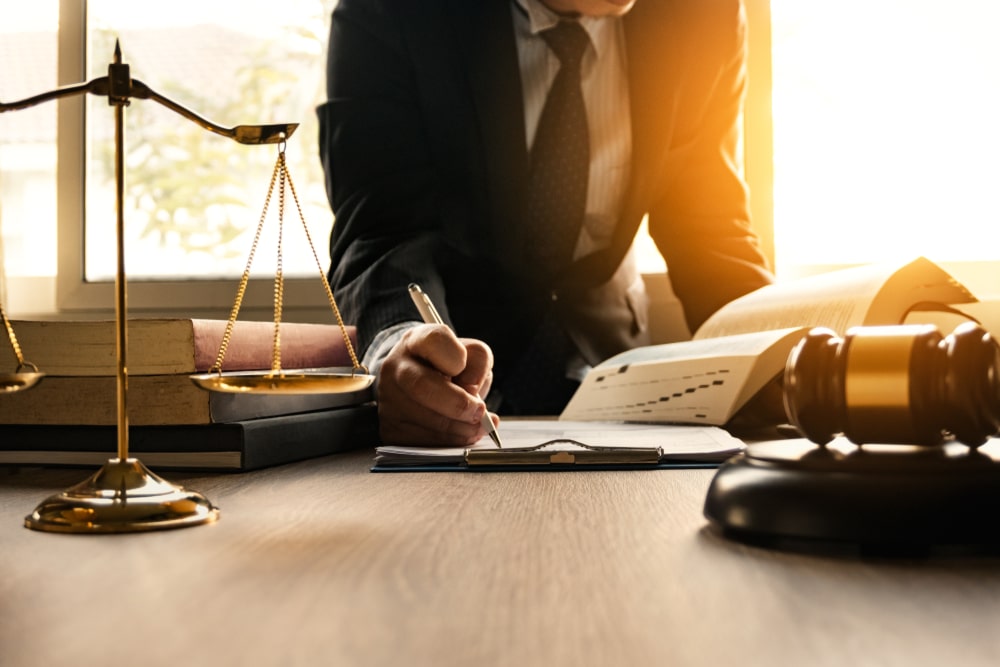What Happens After a Deposition in a Personal Injury Case?

Isaacson, Schiowitz & Korson, LLP is a personal injury law firm renowned for our commitment to representing clients in personal injury and medical malpractice cases. With extensive knowledge and a successful track record, we guide clients through every stage of the legal process, ensuring their rights and interests are safeguarded.
What Happens After a Deposition in a Personal Injury Case: Next Steps Explained
A deposition in a personal injury case marks a critical phase where all parties gather detailed statements under oath. After a deposition, attorneys will analyze the information to shape their legal strategies and negotiate possible settlements. This phase helps to clarify the facts, align testimonies, and structure the ongoing case.
Attorneys on both sides use the deposition to gauge the strengths and weaknesses of the case presented. They might call upon expert witnesses to interpret the evidence, or they might identify areas for cross-examination. This process of review often leads to crucial decisions about moving forward with the case.
The client remains the focal point throughout these proceedings. Legal teams make informed choices while keeping the client’s interests and potential settlement options as priorities. This thorough, client-centered approach ensures each step is taken with precision and care, reflecting the significance of the deposition in determining the future of the case.
Deposition Dynamics and Outcomes
Deposition dynamics involve the process and impact of a deposition in a personal injury case. Understanding the purpose, typical questions, and immediate steps are crucial for navigating the case effectively.
Definition and Purpose of a Deposition
A deposition is a legal procedure in which a witness provides sworn testimony outside of the courtroom. Its primary goal is to gather information and establish facts before trial. Depositions help both parties prepare their cases by revealing details that might not be available from documents or other evidence. This step is essential in personal injury cases to clarify the incident, injuries, and damages involved.
Common Questions Asked During a Deposition
During a deposition, attorneys might ask a range of questions. Common topics include the incident details, medical treatment, and the impact of injuries on daily life. For instance, a plaintiff may be asked to describe how the accident happened, list all doctors visited, and explain how the injury affects their work and personal activities. These questions aim to build a comprehensive picture of the case.
Immediate Actions After a Deposition
After a deposition, several immediate actions are necessary. The attorney will review the testimony to identify any inconsistencies or new information that could affect the case strategy. It’s also common to prepare for additional depositions or follow-up actions based on the insights gained. In some cases, the deposition may lead to settlement discussions, especially if the testimony reveals critical weaknesses or strengths in either party’s case.
Post-Deposition Strategy and Analysis
After a deposition in a personal injury case, critical steps follow to bolster the case’s strength. These steps involve in-depth review, strategic client-attorney discussions, and planning for the next legal moves.
Reviewing Deposition Transcripts
Post-deposition, attorneys meticulously review the deposition transcripts for inconsistencies and critical revelations. They look for discrepancies in witness testimonies that might be advantageous. Identifying gaps or contradictions in the opposing party’s statements is crucial. Lawyers also assess the witness’s demeanor and credibility. Any impactful testimonies are highlighted and used to refine arguments. This analysis is vital for shaping trial strategies or settlement discussions.
Client-Attorney Discussion for Analysis
Post-review, attorneys hold detailed discussions with their clients. They explain the deposition outcomes, addressing any concerns the client might have. This conversation often involves strategizing based on the deposition insights. Attorneys offer expert advice on how the findings may impact the case. The client is briefed on the strengths and weaknesses highlighted by the deposition. These meetings also help in clarifying any further information required to support the case.
Next Legal Steps Following a Deposition
The next steps involve preparing for trial, if settlement isn’t reached. This preparation includes gathering additional evidence, preparing witness lists, and finalizing arguments. Attorneys may also file motions to exclude certain testimonies or evidence based on the deposition review. Strategic planning for jury selection and courtroom presentations begins. Proven success in personal injury cases often hinges on thorough post-deposition preparations.
Case Advancement and Resolution Options
After a deposition in a personal injury case, several paths open up that can help move the case forward. These include settlement negotiations, pre-trial motions, and possible mediation or arbitration.
Settlement Negotiations
Settlement negotiations often become more serious after a deposition. Attorneys for both parties use deposition testimonies to evaluate strengths and weaknesses. This can lead to more realistic settlement offers.
Both sides may exchange settlement demands and counteroffers. Important factors in these discussions include medical expenses, future care costs, and lost wages. A well-documented deposition can make negotiations smoother, highlighting key areas such as liability and damages.
In some cases, parties may agree on a settlement without proceeding to trial. This can save time, reduce legal fees, and offer quicker resolution.
Pre-Trial Motions
Pre-trial motions play a critical role in shaping the outcome before reaching the courtroom. These motions aim to resolve certain issues early, streamline the trial process, or even dismiss the case altogether.
Common motions include motions to dismiss, motions for summary judgment, and motions in limine. For instance, a motion for summary judgment can be filed if one party believes there’s no factual dispute and they are entitled to judgment as a matter of law.
If granted, these motions can significantly impact the direction and duration of the case.

Possible Mediation or Arbitration
Mediation or arbitration offers alternative routes for resolving disputes without going to trial. Mediation involves a neutral third party who helps both sides reach a voluntary agreement.
Arbitration, on the other hand, involves a neutral arbitrator who listens to both parties and makes a binding decision. These methods can be faster and less formal than traditional court proceedings.
They also offer parties more control over the outcome. Mediation and arbitration can be particularly useful when both parties seek a quicker, more cost-effective resolution.
Towards the Courtroom: Trial Preparations
After a deposition, attention shifts to trial preparations. Key activities include gathering relevant documents, organizing witness lists, and understanding the case timeline.
Trial Preparation Activities
Trial preparations involve a series of crucial steps. Attorneys review the deposition transcripts to identify key points and arguments. They gather additional evidence that supports the client’s case. Legal experts may be consulted to provide insights, and pre-trial motions could be filed. These tasks are essential for building a strong case before facing the courtroom.
Organizing Witnesses and Evidence
Organizing witnesses and evidence is another critical step. Witnesses are categorized based on their relevance and the insights they provide. Documents, photographs, and expert testimonies are compiled and arranged coherently. This organized approach ensures that each piece of evidence aligns with the case strategy, making it easier to present in court.
Understanding the Timeline
Understanding the timeline from deposition to trial is vital. The time frame might vary depending on factors such as court schedules and the specifics of the case. Attorneys at Isaacson, Schiowitz & Korson, LLP keep clients informed about expected trial dates. Detailed schedules are created to manage deadlines for submitting evidence and legal motions, ensuring nothing is overlooked.
Factors Affecting the Case Duration
Several factors can affect the duration of a personal injury case. The complexity of the case, the number of witnesses, and court backlogs can all play a role. Unexpected developments, such as new evidence, might also extend the timeline. By anticipating these variables, attorneys can better prepare and adjust their strategies accordingly. This careful planning contributes to a more efficient trial process.
If you have any additional questions or concerns, reach out to our team.



